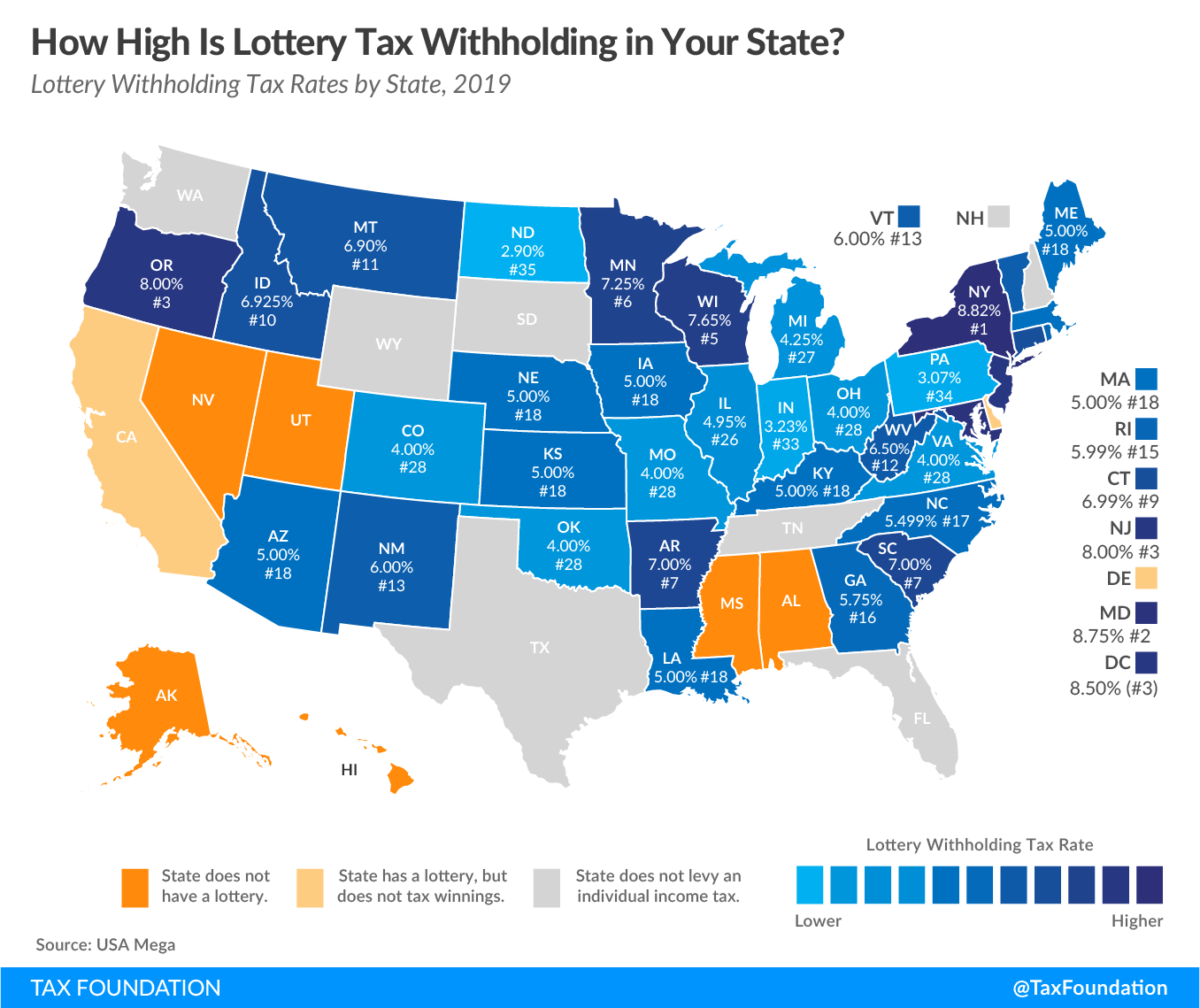With the Powerball Jackpot at $118 million, Americans in 43 states and D.C. are lining up for tickets. While one or more persons will get the winning numbers sooner or later, every state that allows ticket sales also wins big. After all, the coffers of the 44 participating jurisdictions get a slice of every jackpot, as only about half of Powerball ticket revenue is given out in the form of prizes (lower than the average for other lottery games). The rest of the jackpot, minus the consortium’s administrative costs, goes toward those jurisdictions.
While your ticket purchase might be a long shot, the government cut of the winnings is guaranteed. And in all likelihood, at least one state is going to win big twice. That’s because lottery winnings are generally taxed as ordinary income at the federal and state levels (and, where applicable, locally). In fact, most states (and the federal government) automatically withhold taxes on lottery winnings over $5,000. However, withholding rates vary and do not always match state individual income taxes.
California and Delaware do not taxA tax is a mandatory payment or charge collected by local, state, and national governments from individuals or businesses to cover the costs of general government services, goods, and activities. state lottery winnings. Arizona and Maryland have separate resident and nonresident withholding rates. In New York, residents of New York City and Yonkers face additional withholdings of 3.876 percent and 1.323 percent, respectively. And of course, withholdingWithholding is the income an employer takes out of an employee’s paycheck and remits to the federal, state, and/or local government. It is calculated based on the amount of income earned, the taxpayer’s filing status, the number of allowances claimed, and any additional amount of the employee requests. rates sometimes differ from the top marginal rate, because states account for lottery winners being unlikely to pay the top marginal rate on all their winnings, given various exemptions, credits, and deductions, and the nature of graduated taxes.
As you might expect, winners in states which forgo individual income taxes or exempt lottery winnings fare the best. States which do not withhold winnings offer some advantages, too, but the tax bill still has to be paid. At the other end of the spectrum, states with high withholding rates effectively receive a no-interest loan from the winner until tax returns are filed and a refund is processed.
Lump sum payouts for this contest at this level of jackpot will vary considerably across the country, ranging from the lowest in New York at $48,772,680 to a high of $55,176,000 in states either forgoing an individual income taxAn individual income tax (or personal income tax) is levied on the wages, salaries, investments, or other forms of income an individual or household earns. The U.S. imposes a progressive income tax where rates increase with income. The Federal Income Tax was established in 1913 with the ratification of the 16th Amendment. Though barely 100 years old, individual income taxes are the largest source of tax revenue in the U.S. or exempting state lottery winnings. This includes federal withholding of 24 percent ($17.4 million), though federal liability could ultimately be much higher, particularly if the winner isn’t feeling very charitable with his or her prize.
Share this article